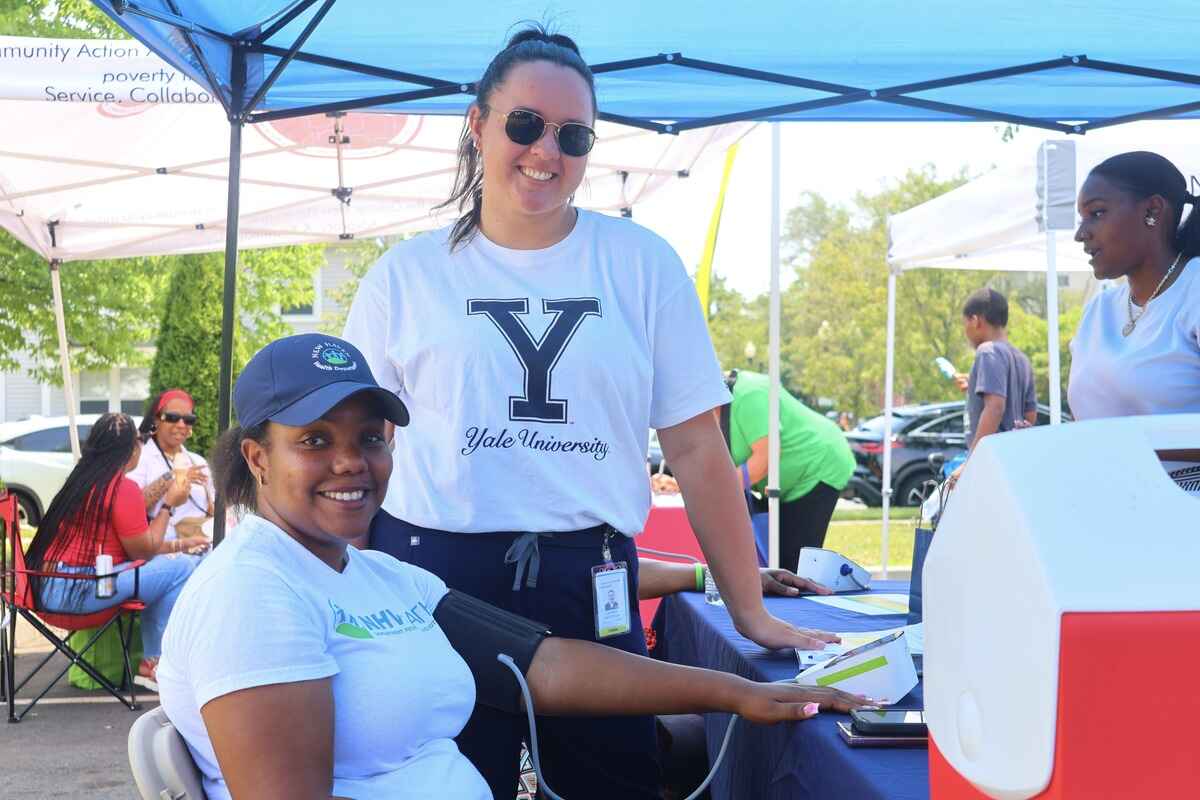Before the 20th century, most doctors made house calls as the home was considered the ideal place to heal. As the healthcare landscape changed and technology advanced, this model largely became obsolete – until now.
Yale New Haven Health’s Home Hospital program enables patients to receive hospital-level care in the comfort of their homes. Compelling evidence suggests this model of care is safe, effective, and less costly, but how do patients feel about it?
Irene Glavan, 70, of Stratford, CT, was admitted to Bridgeport Hospital at 4 am with difficulty breathing after a rough bout of RSV (Respiratory Syncytial Virus), one of the common cold viruses that can make some people very sick.
“I was anxious to meet with the doctors and know what was wrong with me,” said Ms. Glavan. “The nurse handed me a phone to chat with a doctor about being transferred home. The doctor explained there would be a full set-up in my home. It took several conversations for me to decide to try it, knowing I would be transferred to the physical hospital if needed.”
Ms. Glavan was taken home by an ambulance. Her home was outfitted with a router for WiFi, tablets to FaceTime a doctor, case manager and specialists, and several wearable devices with extra battery packs so her clinical team could get real time feedback on her vital signs. Her bathroom was even equipped with an emergency call system.
“I was an X-ray technologist in major New York and California hospitals and never heard of anything like this,” said Ms. Glavan. But I felt almost more cared for at home because everyone was so focused on my care, and knew so much about my condition. It was also helpful that my husband no longer needed to rush home from work to see me.”
When Ms. Glavan’s room was being set-up, she initially needed an IV pole for IV antibiotics, which was removed as soon as the antibiotics were no longer needed.
“What is special about the program is that the same nurse case manager interacts with the patient throughout their acute care at home and coordinates the handoff post discharge,” said
Olukemi T. Akande, MD, medical director, Home Hospital. “This really solidifies continuity of care.”
There are now over 200 hospitals nationally approved for this kind of care. Since Home Hospital launched in June 2022, the program has seen 226 patients. Each patient is screened for clinical and psycho-social measures to ensure they are good candidates for this type of care.
“One of the biggest misconceptions about Home Hospital is that it is synonymous with homecare,” said Dr. Akande. “It is very different. We care for people similar to when they are in the hospital including transferring them to a higher level care in the physical hospital when necessary.”
The program is covered under traditional Medicare , United Healthcare Medicare Advantage, Aetna Medicare Advantage, Anthem BCBS Commercial, Anthem BCBS Medicare Advantage and the YNHHS employee health plan with plans to expand to other payors.
Over the holidays, around 4:30 am Ms. Glavan was feeling particularly depressed. While sitting in her living room she hit the call button on her hospital-issued monitor to talk to the nurse she knew was on call for her. “I told her I was feeling down and she was so comforting,” said Ms. Glavan. “I wonder if that would have happened in the hospital.”
Some
studies suggest that patients hospitalized at home are discharged two days sooner, with lower rates of emergency room visits and hospital readmissions, and that patients are less likely to need physical rehabilitation afterward.
After about a week, Ms. Glavan was discharged to her family practice doctor. She is now back working at her church thrift shop where you can find her displaying treasures for patrons.



